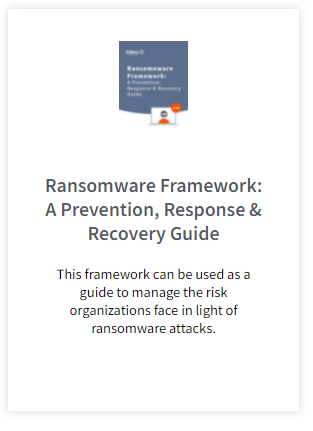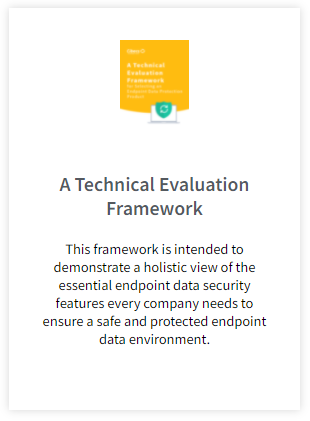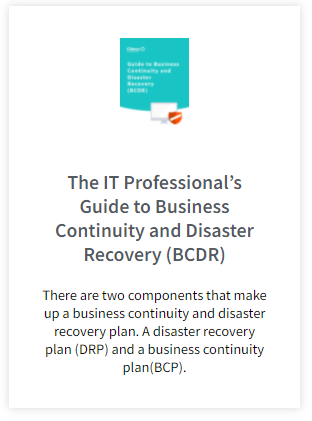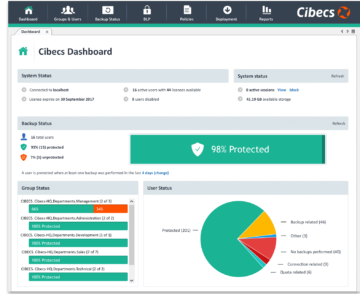The best way to protect yourself, your users and your business against ransomware is by setting up a proactive defence. The ransomware statistics paint a frightening picture for anyone in charge of IT: In Q3 2016 alone, 18 million new malware samples were captured. Source: Panda Labs What that means is that the criminals…

Data protection has always been likened to insurance, as something that you only need when a catastrophe happens. However, for companies to look at data protection in this limited scope puts the entire business at risk.
Whether you run a service or a manufacturing business, data is a critical element in your business. From client information to product specifications and financial documents data now forms a critical pillar of the business, without it, the organisation would not be able to function.
Let’s take this example into something more tangible that data, the factory floor of a manufacturing business. In a factory, time not spent producing widgets means a loss profit, to prevent this, factory managers or owners know that regular maintenance of machines, upholding to safety standards a and planning ahead for events that may cause downtime like power outages or employee strikes.
This ongoing maintenance, management and planning are what ensure that the business is protected against unforeseen productivity.
Businesses rely on data in one form or another for the ability to keep going. Protecting this data is only logical. Data protection is a multi-pronged approach for IT managers, it requires several layers to ensure that data is well and truly protected.
Endpoint data protection
Most users save data directly onto their laptops and desktop computers. Unfortunately for most businesses most of this data is never backed up to a safe location, potentially being at risk for being leaked, lost or outright stolen.
Server data protection
Servers are one of the most critical data storage points in the business, whether it’s an email server, file server or backup server that form an essential function in information flow and storage within a company. These servers alone, however, are not enough or infallible, they too should be backed up and protected so that in a disaster the business is not left without its data.
Cloud data protection
Data stored in the cloud can also be at risk for being or illegally accessed. Data sharing and syncing services such as Dropbox or Google Drive only include rudimentary data protection that is only a legacy of the core function of the solution. For businesses it I essential that this data is in some way being backed up or stored.
FEATURED POSTS
IT Managers: How to Protect Your Users Against Ransomware
The best way to protect yourself, your users and your business against ransomware is by setting up a proactive defence. The ransomware statistics paint a frightening picture for anyone in charge of IT: In Q3 2016 alone, 18 million new malware samples were captured. Source: Panda Labs What that means is that the criminals…
Cibecs Joins Silicon Valley Top 20
Cibecs Joins Silicon Valley Companies to be Listed on Top 20 Most Promising Storage Solution Providers Cibecs, a leading South African endpoint backup, protection and security solution, has been recognised as one of the 20 Most Promising Storage Solutions by CIO Review. The list, compiled by industry insiders, highlights leading global technology providers that offer effective…
4 Signs You Need a New Endpoint Data Backup Solution
With more workers depending on laptops it is more important than ever to ensure that the work protected and stored on those devices is backed up and protected. Forrester Research says that 45% of corporate executives don’t follow policies for data use and handling. Underlining how at risk almost half of a business’s data actually…











